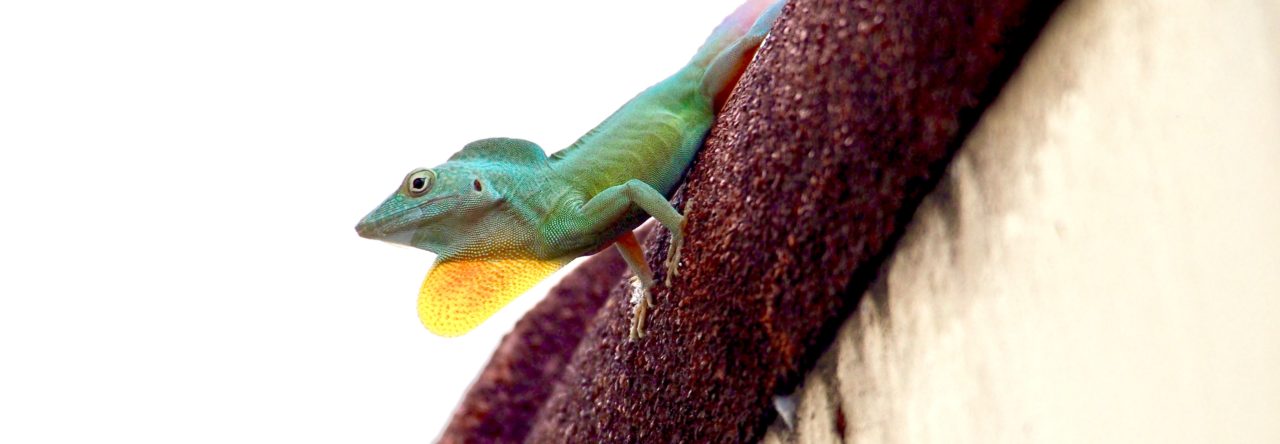Who knew that false chameleons, as they are called (technically, anoles in the clade—formerly genus—Chamaeleolis), are so common in the reptile captive husbandry world? In Cuba, these animals are a rare treat, one of the hardest anoles to find. Many talented anole biologists have returned from Cuba empty-handed, with nary a Chamaeleolis spotting to report. One might think that a big, white lizard like this would be easy to spot, but they are very slow and shy, blending right into their environment.
Cuba strongly protects its native wildlife, but apparently some got out, reputedly to Europe. Turns out that they are easy to breed, and so now they are readily available. Not cheap, though—a quick google found false chameleons of several species for sale, but the standard price was in the $500 range.
In any case, should you have a hankering to go Chamaeleolis, there’s now a good resource for captive husbandry and care. Kelly Bradley of the Forth Worth Zoo has raised many a false chameleon in her day, and she’s now detailed how to do it in her recent tell all exposé in Reptiles magazine
- Evolution in Real Time on Lizard Island - March 23, 2025
- Spider Snags Adult Anolis osa - March 22, 2025
- An Homage to the Green Anoles of New Orleans - March 21, 2025



cybokat
Let’s get it over with: “ooh. aaw. how cute!”
Alec Feldman
Best lizards ever … I have worked with these for years now and Kelly’s article is spot on about the care, behavior, problems, etc… well written. Have 4 species now … all c.b. for many generations and just love working with them. Unlike other anoles … these are very very mellow as c.b. animals. My oldest male barbatus will sit on my desk for hours when I am working and just wait for meal. An adult female can produce 1 egg every 7-10 days for about 7 months, like other anoles. Eggs are tricky and rearing the young is even trickier … but most do survive with the right guidance. Amazing animals.
Karch Peter
Studies to this Lizards in Captivity …since 1983 …spec. to the Thematik of Ch.barbatus
includet Problematik since the 1994 – 2015 …in Care
By Interesst : Contact over E- Mail .
Heike Dixon
Hi there,
I have an Anolis barbatus male which was already adult when I purchased it about 3 years ago. As I read hear some of you have a long time experience with this species so I hope someone can tell me something about the approximate lifespan of this species. I couldn’t find any information on this on the Internet so far.
Thanks in advance.